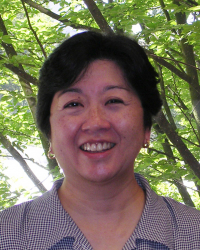You are here
Barbara-Wakimoto

Developmental Genetics, Reproductive Biology, Fertilization
Chromosome Structure, Sperm Nuclear Remodeling, Paternal Effects
The Wakimoto Lab is interested in developmental and chromosome biology and we apply genetics, genomics and cell biological approaches.
Several years ago, we carried out the largest screen for Drosophila male sterile mutations to date and characterized over 2,000 mutant lines to identify the rare classes affecting sperm function during fertilization and paternal effects during embryogenesis. The investment in recovery and analysis of these male sterile mutations has been extensive, but we have identified nearly 70 genetically defined complementation groups and 10 new sperm proteins. The majority of the molecules are uniquely expressed during spermatogenesis and required for sperm-specific procresses such as biogenesis of the acrosome, sperm activation in the egg cytoplasm, remodeling of sperm chromatin. The analysis of these fertilization-defective and paternal effect mutants have led to new ideas about pathways required for normal sperm-egg membrane interactions and the stable maintenance of paternal chromosomes during early embryogenesis.
Barbara Wakimoto is a Professor Emerita of Biology, an Adjunct Professor of Genome Sciences, and a former member of the Molecular and Cellular Biology Program at the University of Washington.
